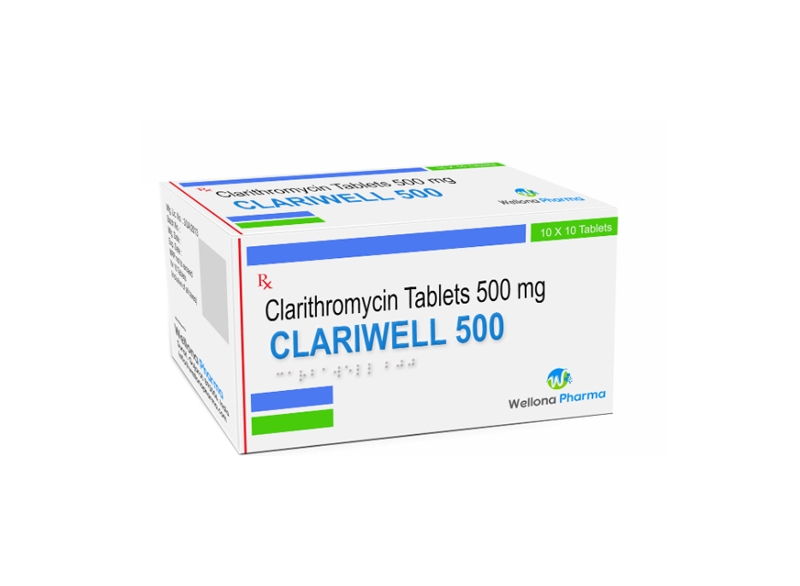Clarithromycin Tablets

* Images for illustrative purposes only
* Brand supplied may vary depending on stock availability
Same-day Service Available
Same-day service available for additional £10, conditions apply.

* Images for illustrative purposes only
* Brand supplied may vary depending on stock availability
Same-day service available for additional £10, conditions apply.
No appointment or long waiting times
Your information always remains private
All our doctors & pharmacists are qualified & based in the UK
Dispensed by our UK partner pharmacies


Choose from our treatment options or speak to the in-store pharmacist for advice

Complete our free online medical consultation to be reviewed by our Clinical Team

We will notify you when your medication is ready for collection
The dosage of clarithromycin for sinusitis varies based on the severity of the infection, the patient's age, weight, and overall health. The usual dosage for adults is:
You may take this medicine with meals or milk or on an empty stomach. However, clarithromycin extended release tablets should be taken with food.
If you are using the extended-release tablets:
If you forget to take a dose, take it as soon as you remember, unless it's nearly time for your next dose. If this happens, just leave out the missed dose and take your next dose at the usual time. Never take 2 doses at the same time. Never take an extra dose to make up for a forgotten one. If you often forget doses, it may help to set an alarm to remind you. You could also ask your pharmacist for advice on other ways to remember to take your medicine.
Taking an extra dose of clarithromycin is unlikely to harm you or your child. However, it may give you temporary side effects, like stomach pain, feeling and being sick (nausea and vomiting), and diarrhea. Talk to your pharmacist or doctor if you're worried or get severe side effects, or if you or your child take more than 1 extra dose.
Always use this medication exactly as your clinician has told you. Check with our clinical team or your GP or pharmacist if you are not sure.
Medicines and their possible side effects can affect individual people in different ways. The following are some of the side effects that are known to be associated with this medicine. Just because a side effect is stated here, it does not mean that all people using this medicine will experience that or any side effect.
The most common adverse effects are:
Antibiotic-associated colitis has been reported and may range in severity from mild to life-threatening.
Other possible adverse effects include:
For full information on side effects and correct use, see the patient information leaflet. If any side effects concern you, or you are experiencing any of the side effects mentioned in the patient information leaflet whilst taking this medication, please contact our clinical team or speak to your GP.
Hepatic dysfunction has been reported. This includes increased liver enzymes, and hepatocellular and/or cholestatic hepatitis (with or without jaundice). Hepatic dysfunction may be severe and is usually reversible. Cases of fatal hepatic failure have been reported. Stop Clarithromycin treatment and seek medical advice if signs and symptoms of hepatic disease develop, such as anorexia, jaundice, dark urine, pruritus, or tender abdomen.
Clarithromycin should be avoided in the following situations:
Get emergency medical help if you have signs of an allergic reaction to this medication. These include:
It is important that you let us know which prescription, over-the-counter medicines and recreational drugs you are currently taking. You must also tell us about any other medical conditions that you currently have (or had in the past). This will help us ensure the prescribed medication is safe and appropriate for you to take.
For full information on warnings, medication interactions and contraindications, refer to the Patient Information Leaflet. Please read all packaging and the Patient Information Leaflet before taking any new medicine and inform our clinical team or your GP of medicines you are taking or intend to take.





